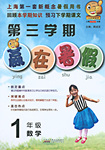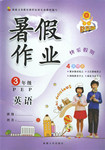题目内容
【题目】Students who say they never or hardly ever use dictionaries often speak English well but usually write poorly, because they make many mistakes.
The students who use dictionaries most do not learn especially well either. The ones who look up every new word do not read fast. Therefore they do not have time to read much. Those who use small two-language dictionaries have the worst problems. Their dictionaries often give only one or two words as translations of English. But one English word often has many translations in a foreign language and one foreign word has many translations in English.
The most successful students are those who use large college edition dictionaries with about 100,000 words but do not use them too often. When they are reading, these students first try to get the general idea and understand new words from the context. Then they reread and use the dictionary to look up only key words that they still do not understand. They use dictionaries more for writing. If they are not sure how to spell a word, or divide it into syllables (音节), they always use a dictionary. Also, if they think a noun might have an unusual plural form, they check these in a dictionary.
【1】The writer thinks that .
A. choose a good dictionary, and you’ll be successful in learning English
B. dictionaries are not necessary to the students who learn English
C. it is very important for students to use good dictionaries properly
D. using dictionaries very often can’t help to improve writing
【2】 According to the passage, which of the following is wrong?
A. Dictionaries have little effect on learning to speak English.
B. Whatever new words you meet while reading, never use dictionaries.
C. Small two-language dictionaries have serious defects (缺陷).
D. Reading something for the first time, you’d better not use dictionaries.
【3】When in the reading does the writer advise students to use a good dictionary?
A. At the beginning of the reading
B. At the end of the reading
C. During the first reading
D. After the first reading
【4】This passage mainly tells us .
A. students shouldn’t use small two-language dictionaries
B. what were the defects of small two-language dictionaries
C. why students should use large college edition dictionaries
D. what dictionary students should choose and how to use it
【答案】
【1】C
【2】B
【3】D
【4】D
【解析】
试题分析:本文属于教育类说明文,告诉我们应该使用词条较多的大字典,并告诉我们如何使用字典。
【1】C 推理判断题。根据第三段第一句The most successful students are those who use large college edition dictionaries with about 100,000 words but do not use them too often.可知最成功的学生是使用有10万词条的大字典但并不频繁使用,只是在适当的时候使用的学生。也就是说恰当地使用好字典是很重要的。故C正确。
【2】B 推理判断题。根据第三段第三句Then they reread and use the dictionary to look up only key words that they still do not understand.可知我们可以去查那些重新阅读以后仍然不能理解的词,这是有效的使用字典的方式。并不是说从来不查字典是正确的。故B项符合要求。
【3】D 推理判断题。根据第三段2、3句When they are reading, these students first try to get the general idea and understand new words from the context. Then they reread and use the dictionary to look up only key words that they still do not understand.可知阅读的时候,学生先读一遍,然后再查自己自己不理解的生词。故D正确。
【4】D 主旨大意题。文章一、二两段中阐述了错误使用字典的两种情况,在第二段中还提出我们应该使用词条较多的大字典。然后和在文章第三段中提出了使用字典的正确方法。属于D项内容符合上下文串联。

 第三学期赢在暑假系列答案
第三学期赢在暑假系列答案 学练快车道快乐假期暑假作业新疆人民出版社系列答案
学练快车道快乐假期暑假作业新疆人民出版社系列答案